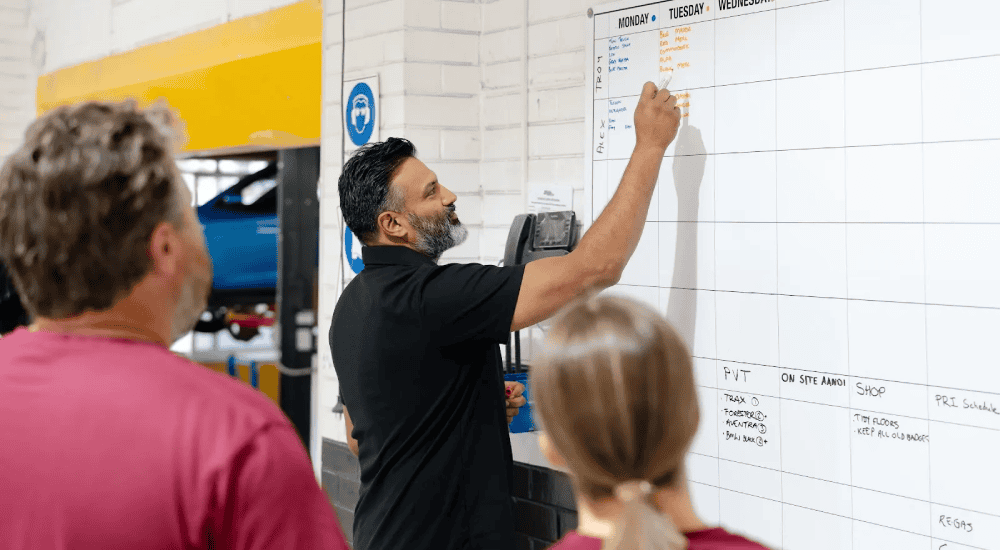Sheen Resources
.webp)

Some things in life are fixed expenses — your mortgage, car repayments, or rent. You can try to negotiate these payments, but you’ll rarely get far with your bank or landlord.
Car insurance is a little different. Thanks to high competition between insurers and relatively easy switching processes, you may be able to negotiate a better deal on your car insurance premium, or at least find a more competitive rate by comparing providers.
Whether renewing a policy or shopping around for the first time, this guide will help you understand how car insurance rates work in Australia, what affects them, and how to bring your premium down.
Need help after a crash? Sheen can assist with repairs and even speak to your insurer. Call Sheen today for a quote and friendly service.
How are car insurance rates calculated?
Not all car insurance policies are created equal, and neither are their premiums. Your car insurance rate is calculated based on risk factors, vehicle details, and personal information. While each insurer uses slightly different formulas, most will consider the following:
Key factors that influence your premium:
- Your age and driving history—Younger or less experienced drivers tend to pay more, especially those under 25.
- Where you live – Suburbs with higher crime rates or accident stats (like inner-city Melbourne) usually attract higher premiums.
- How your car is parked overnight – A secure garage or off-street parking reduces your risk profile.
- Your car’s make, model and value – Expensive or high-performance cars cost more to insure due to repair or replacement costs.
- The level of cover you choose – Comprehensive insurance is the most expensive but offers the most protection.
- How much you drive – The more time you spend on the road, the more likely you are to be involved in an accident.
- Past claims history – If you've made multiple claims, insurers may see you as a higher risk.
With so many variables involved, it’s worth shopping around or negotiating to ensure you’re not overpaying.
Average comprehensive car insurance premiums in Australia
Source: Canstar, June 2024
Can you negotiate car insurance premium?
Yes, in many cases, you can — but it depends on how you approach it.
Unlike utilities or phone plans, insurance premiums are determined by risk profiles, not just flat rates. That said, many insurers are willing to offer discounts or adjust your rate if you give them a reason to, especially if you're a low-risk driver or a loyal customer. You just need to ask the right questions and come prepared.
What to say when negotiating:
- “I’ve received a lower quote from another insurer — can you match or beat it?”
- “I haven’t made a claim in years — is there a no-claims discount available?”
- “If I increase my excess, will that lower my premium?”
- “Can I remove optional extras I don’t need?”
Sometimes, just calling your insurer instead of renewing online can result in a lower premium.
Tip: When comparing car insurance rates in Melbourne, be sure to check if the quote includes accident replacement vehicles, choice of repairer, and roadside assistance — these can justify a slightly higher price if they suit your needs.
When should you negotiate your car insurance premium?
While it’s possible to negotiate your rate at any time, some moments are more effective than others. If you’re looking for a better deal, aim to start the conversation during one of these windows:
- When your policy is up for renewal
This is your best opportunity. Insurers know you’re comparing options, and they’ll often offer discounts or incentives to keep your business.
- After a year of no claims
If you’ve driven claim-free for 12 months (or longer), mention your track record — many providers offer no-claim bonuses or loyalty discounts.
- If you’ve received a better quote elsewhere
Competitive quotes from other providers are powerful bargaining tools. Even if the new insurer can’t match it, they might offer extras or reduce your excess.
- If your circumstances change
Moved to a safer suburb? Started parking in a garage? Drive less now? All of these factors may lower your risk, and potentially your premium.
Tips on how to negotiate your car insurance
The best time to negotiate car insurance rates is just before your policy renews. Instead of automatically accepting your renewal notice, call your insurer directly — you’re more likely to get a personalised premium review than if you go online.
Here are a few effective strategies to try:
- Ask why your renewal price has increased, and whether they can offer a more competitive deal.
- Bring up multiple policies (home, contents, etc.) and ask about multi-policy discounts.
- Mention you've received a cheaper quote from another provider and ask if they’re willing to match or beat it.
- If you have other policies with a different insurer, consider moving them across to consolidate and save.
Even if the idea of asking feels a bit awkward, the payoff can be worth it. You could save hundreds of dollars on your annual premium — just by starting a conversation.
How to know what you should be paying
Before negotiating, it’s essential to understand what your premium should be — so you know if you’re getting a fair deal or overpaying.
Here’s how to find your benchmark:
- Decide what level of cover you actually need — are you after comprehensive insurance or just third-party property protection?
- Compare car insurance rates online using quote comparison tools or speak with providers directly to see the current market range.
- Check the details of each policy, especially exclusions, driver excesses, and whether extras like roadside assistance are included.
Once you’ve established a realistic price range for the cover you want, approach your insurer and ask them to match it. If they can’t — or won’t — it may be time to take your business elsewhere.
Check out our resource about whether you need comprehensive car insurance to help you decide.
.webp)
What to look for when choosing insurance providers
Price matters — but when you’re comparing car insurance policies, value for money matters more. A slightly higher premium could be worth it if it comes with the right extras.
Here are some questions to ask when reviewing your options:
- Can you choose your own repairer or are you limited to an insurer’s preferred network?
- Is there an excess on not-at-fault claims, or does the insurer waive it?
- Does your insurer offer a no-claims bonus or loyalty discount for safe driving?
- Are personal items in your car covered if stolen or damaged?
- Is new-for-old replacement available for eligible vehicles?
- Is there a cooling-off period in case you change your mind after purchasing the policy?
These details often appear in the fine print, but they can have a big impact on your experience after an accident. So when comparing providers, weigh up more than just the price — choose the cover that truly suits your car and your needs.
Need help after a crash? Sheen can take it from here
It’s always worth asking your insurer if the premium they’ve quoted is their best offer — because often, it’s not. As long as you’re comfortable with the level of cover and have confidence in your provider, there’s no harm in asking for a better deal.
And if you’ve recently been in a collision, Sheen Panel Service can help you navigate the insurance process from start to finish. Simply upload a photo of the damage, and our expert team will respond promptly.
We provide quality smash repairs, work with all major insurers, and offer 24/7 towing across Melbourne and regional Victoria.
[nearest_workshop][/nearest_workshop]

.png)




.webp)














